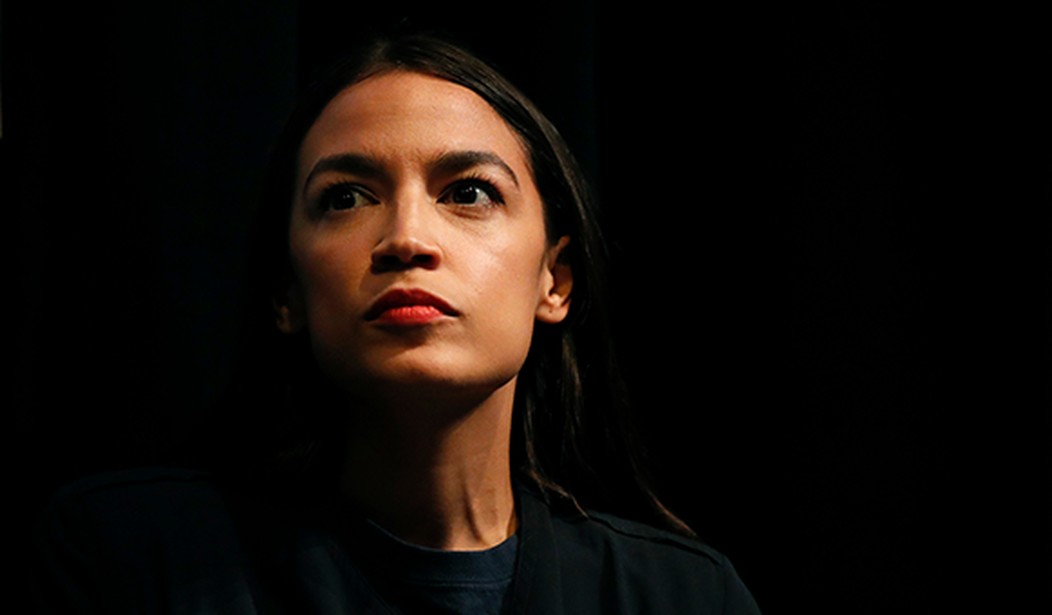Freshman Congresswoman Alexandria Ocasio-Cortez (AOC) has suggested that the federal personal income tax code be changed so that those who contribute the most to the economy should pay a marginal tax rate of 70 percent. This is exactly opposite to what Congress enacted last year when the top tax rate was reduced from 39.6 percent to 37 percent.
Economic policy should set growth as the top priority, especially today. Prior to President Trump taking office, the economy hadn’t grown by a 3 percent annual rate since 2005. The economy hasn’t grown at a 4 percent annual rate since 2000. The results of the unprecedented period of stagnation have been huge increases in underemployment, discouraged workers, food stamp recipients and welfare recipients. In addition, the poverty rate has increased, wages have been stagnant and there is a loss of faith in our economic system.
The plurality of millennials, who have never experienced true economic prosperity, now want to abandon the opportunities given to them from Capitalism in favor of the appearance of security seemingly offered by Socialism.
President Trump has set economic growth as his top policy priority. The result has been that economic growth reached 2.5 percent in 2017 and will be about 3.3 percent for 2018. As long as Trump can keep tax rates low, especially to the capital forming higher income earners, growth will continue to increase likely reaching 3.5 percent to 4 percent for 2019 and 2020.
Why does a high tax rate slow economic growth?
There are some socially oriented economists who would argue that the high tax rate will not slow economic growth. Nobel prize winning economist and New York Times columnist Paul Krugman argues that marginal tax rates were as high as 90 percent in the 1950s and the economy grew.
Recommended
Krugman also notes that the highest tax rate was 70 percent in the 1960s and 1970s and the economy grew. There are two glaring omissions from Krugman’s biased analysis.
First let’s recognize that the US had a labor intensive economy in the 1950s, 1960s and 1970s. But then the technology boom started in the 1980s and continues today. The result is that the US now has a capital intensive economy.
In the 1950s the US produced output using large amounts of labor, much of it on an assembly line. Today factories are capital intensive having replaced workers with robots and other capital goods. Even the service sector sees all workers using some form of capital intensive technology to provide the service. Today, to encourage growth in our capital intensive economy, we need large amounts of new capital.
Capital is created from two primary sources: corporate profits and the disposable income of high income earners. By raising the top tax rate to 70 percent, disposable income for high income earners is reduced so there is less capital available for expansion. This slows the economy.
If AOC can raise the top rate on personal income, the next thing she will do is want to raise the corporate tax rate. That too will reduce capital formation and slow the economy.
Secondly, the high tax rates mean that investors will refrain from making risky, but growth inducing investments. In other words, suppose an investor has a choice of investing $1,000 in a tax free government security that pays 4 percent or invest in a business expansion that she hopes will earn a 10 percent return, which would be chosen?
With the government security the investor earns $40 after tax, without any risk. With the expansion, the investor would earn $100, but after paying $70 in taxes, she would be left with only $30. She would choose the government security and not the growth oriented expansion. If the tax rate was only 36 percent, then the expansion would lead to the investor having a net of $64 after taxes. The expansion would be chosen.
A 70 percent maximum tax rate would severely reduce capital formation and lead to a stagnant economy. In fact, instead of raising the marginal tax rate up to 70 percent, we should do exactly the opposite. To really reach the goals of economic growth, full employment and price stability, the maximum tax rate should be reduced and the tax code made less progressive.
My position has always been that a single rate15 percent tax on all income above a livable minimum (twice the poverty rate) with no deductions for anything would be best to reach the economic goals. All income is treated exactly the same whether it comes from wages, rent, interest, profit or capital gains. The corporate tax rate would also be 15 percent.
That means for a family of four the first $50,000 would be tax free. Every dollar earned above $50,000 would be taxed at 15 percent no matter how the income was earned or how it was so disposed.
Higher taxes always lead to more government spending, less individual freedom, a slower growth economy, more Americans dependent on the government and greater income inequality. By reducing the tax rates and making them far less progressive, the economy can more easily reach the economic goals and raise the standard of living for Americans.
Alexandria Ocasio-Cortez's proposal to raise the top personal income tax rate to 70 percent would lead to a stagnant economy, more income inequality and less opportunity for Americans. No one should be in favor of that.

























Join the conversation as a VIP Member